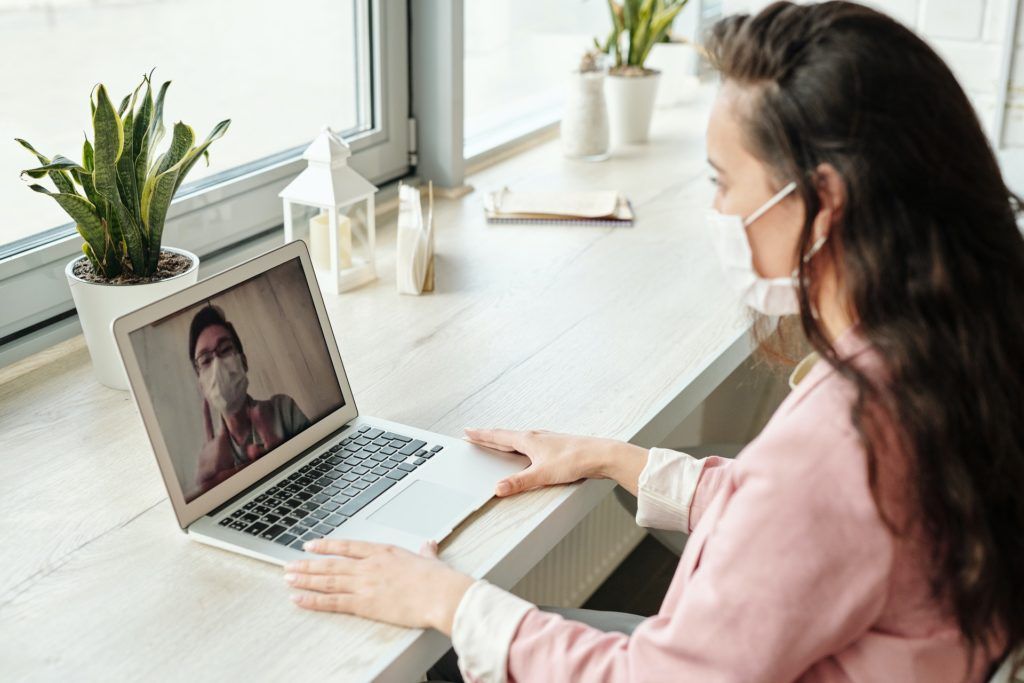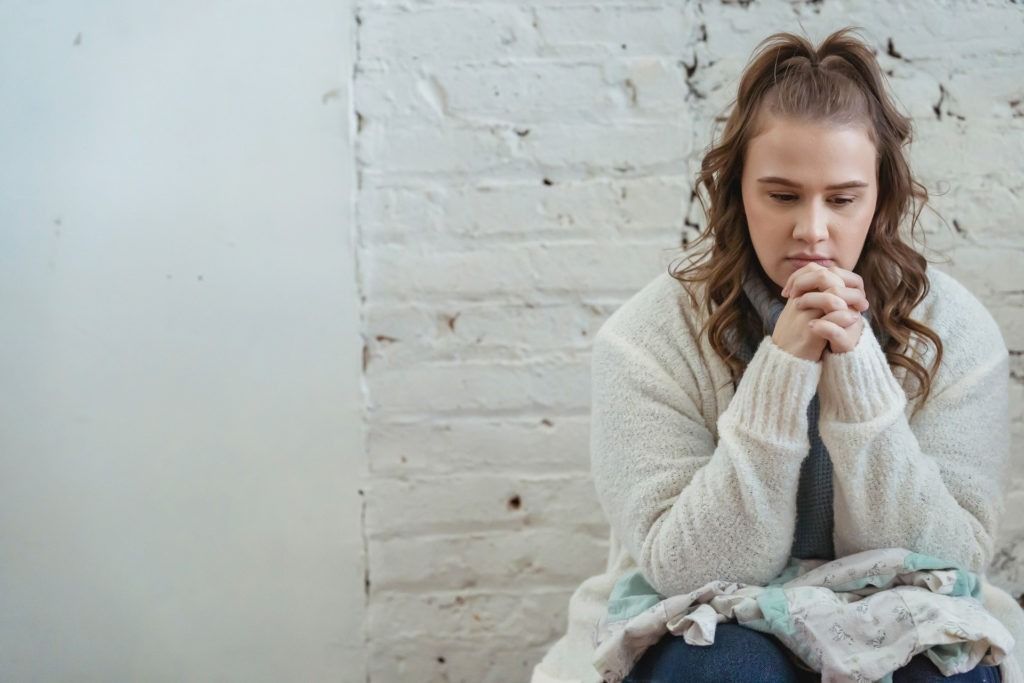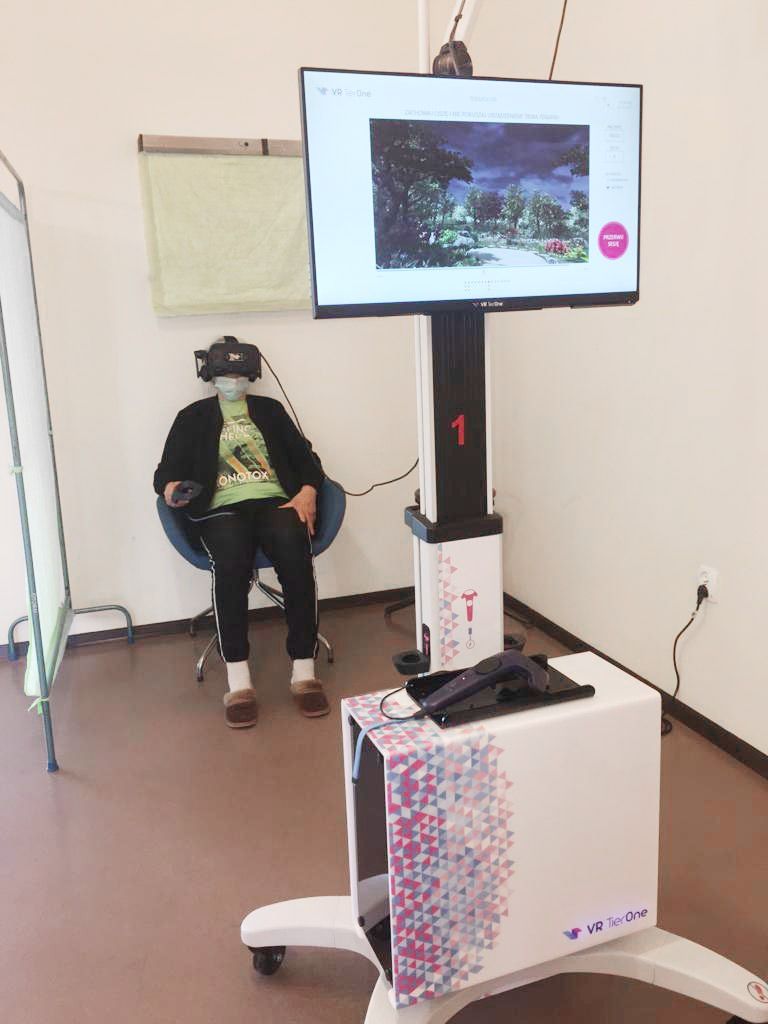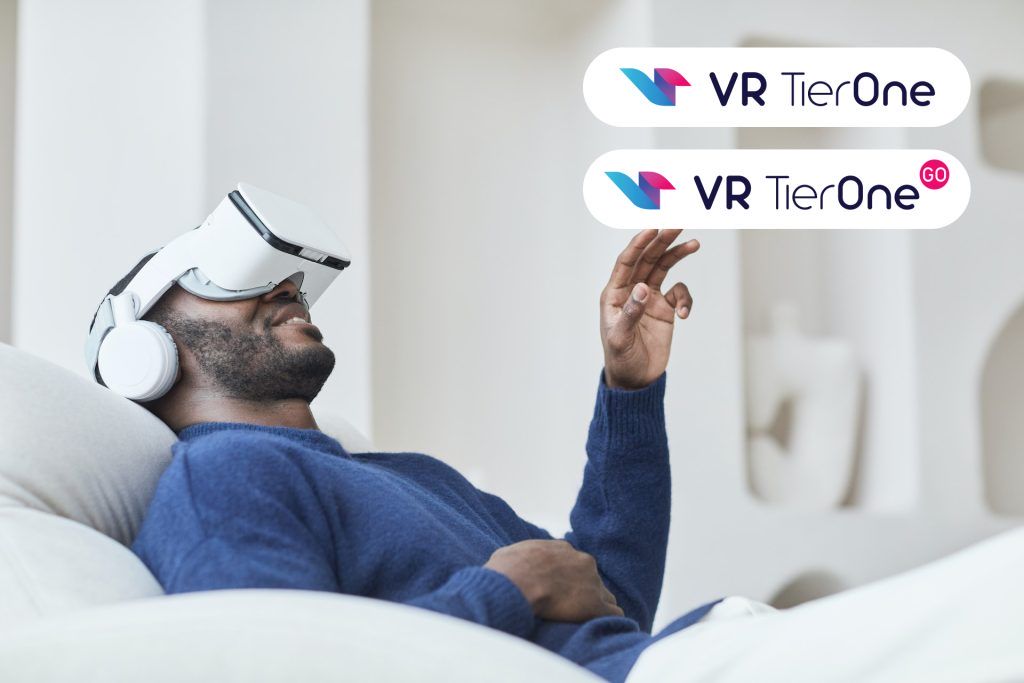COVID-19 is associated with both somatic and mental health issues. However, it does not have to be a coronavirus infection for our well-being and mental functioning to deteriorate. The pandemic situation itself affects our mental well-being. Navigating the area of pandemic prohibitions and orders proves aggravating for us. Therefore, the need to save mental health does not only apply to patients after COVID-19. However, the analyzes conducted so far indicate that as many as 1/3 of convalescents suffer from neurological or psychiatric conditions. It is these people, who may need special psychotherapeutic assistance.
Brain damage
The growing knowledge about the consequences of COVID-19 poses a dynamic situation, and thanks to the increasing body of data we already know that the respiratory virus does not only pose a threat to the lungs. SARS-CoV-2 virus has neurotrophic properties, which means that it can easily penetrate the brain causing disseminated lesions. When the brain suffers from an infection, the patient suffers from neuropsychological ailments. Damage to brain structures is manifested by COVID-19-specific neurological symptoms such as olfactory and taste disorders and it is linked with impaired cognitive processes that occur in convalescents. Brain damage is not the sole reason why a mental health professional is required.
Mental aftermath
As the time of pandemic passes and the number of cases grows, not only the COVID-19 disease itself is becoming a medical issue, but also its numerous consequences. Chronic consequences affecting how our organs operate and the mental state are becoming a challenge for health care and a source of anxiety for patients. Convalescents suffer from exacerbations of existing diseases and from multi-organ and psychological complications. Post-COVID mental disorders have a complex etiology. Possible biological factors include neurotoxicity of the virus, hypoxia of the central nervous system, and thus of the brain, as well as vascular changes in this system. Side effects of the medications administered can also be a factor. Psychosocial factors may include: isolation, media information overload, pandemic restrictions, submission to control, change of work style, economic hardship, long-term stress related to the possibility of infection and loss of health and even life.

These factors are interrelated, overlap and increase the risk of developing neuropsychological disorders. The polyetiological mental health issues of COVID-19 convalescents include:
- Anxiety disorders caused by pandemic isolation, which unfortunately also forms part of the treatment regime of COVID-19 disease. The lack of experience of a loved one and emotional support rendering it difficult for the patient to recover. High mortality, associated with a sense of threat and the experience of generalized anxiety.
- Post-traumatic stress disorder (PTSD ) that can occur in convalescents who, due to their serious condition, were hospitalized in intensive care units. Procedures related to treatment – the need to use a respirator, dealing with medical personnel dressed in protective suits that remind about the risk, and the number of deaths in close proximity, constitute a strong traumatic experience. PTSD disrupts the ability to function, thoughts, emotions, and relationships with other people.
- Cognitive and executive impairmentmay result from brain damage. Convalescents are concerned that their cognitive health has deteriorated following COVID-19. Planning, initiating and executing an action has also become a problem for them. Persistent intellectual disabilities can be frustrating, especially in the professional field. Patients call their ailments brain fog. Although this term is not commonly used in medicine, this poetic term has been adopted to describe disorders in the area of neuropsychology (issues with memory and attention, impaired concentration, orientation and speech difficulties).
- Depressive disorders are likely particularly in people, who already demonstratedsome emotional difficulties prior to the pandemic.The disease can have an extremely difficult course for people previously mentally unstable. Adverse mental health consequences after infection include emotional lability, fatigue, apathy, anxiety, and sleep disorders.
- Insomnia can be caused by breathing disorders and wakefulness from fear of apnea and a fear of life. Sleeping disorders may also be the result of a disturbance in the routine of the day during the pandemic. Patients usually boldly talk about insomnia, not linking it with a symptom of mental disorders. Sleep issues increase fatigue after COVID-19.
Epidemic experience
We may wonder why so much attention is paid to mental health in the context of COVID-19. This is because previous SARS and MERS coronavirus outbreaks have demonstrated that poor public awareness of the far-reaching psychological consequences of infection translates into a lack of understanding and faith about the causal links between prior viral infection and exposure to emotional problems.

In the present situation, as we are dealing with a much larger scale of the problem, the above conclusions of the researchers constitute an important reflection and provide guidelines on how to deal with COVID-19 convalescents. We certainly do not want to face another wave of the diseases, this time due to post-COVID depression, increasing mental disorders and disability caused by this.
Psychotherapeutic aid
Mental health issues are a social taboo. Openly admitting to using the assistance of a psychologist or psychotherapist, may, unfortunately, devalue the person who opted for professional support. The experience of a supra-regional stressor, i.e. the pandemic, at the same time by many people around the world, has resulted in massive interest in the virus, the disease and its effects. Mental health, the flip side of the coin of our health, is gaining well-deserved attention in the pandemic right now. The increased awareness of the impact of the coronavirus on mental health translates not only into the treatment that practitioners introduce with patients after COVID-19, but also affects the behaviour of the society towards neuropsychological disorders. In the context of COVID-19 mental issues appear to be more openly discussed. The green light of society to use the help of a psychotherapist is not enough, because there is simply a shortage of specialists. Although there are other forms of therapeutic interactions, psychotherapy as a non-pharmacological method remains safe and beneficial because this type of supporting aid is effective even after its completion.
Post-COVID rehabilitation
It is not worth delaying reaching for mental health care, especially as it can be provided as part of post-COVID-19 rehabilitation. An example of comprehensive therapeutic rehabilitation following the coronavirus disease is the rehabilitation programme carried out by SP ZOZ Specialist Hospital of the Ministry of Internal Affairs and Administration in Głuchołazy. The mental health of rehabilitated patients of the hospital of Ministry of Interior and Administration (Głuchołazy, Poland) is supported by the VR TierOne medical device, enabling psychotherapeutic interventions in an attractive virtual world scenery. The healing qualities of the VR environment were appreciated by professor Jan Angielniak, head of the local Therapeutic Improvement Department, who implemented the VR TierOne solution to the rehabilitation program of patients. Depressive, anxiety and stress disorders may render any rehabilitation difficult, reducing its effectiveness, and hence the presence of VR TierOne in post-COVID rehabilitation.

The healing effects of VR TierOne
VR TierOne immersion therapy with the features of psychotherapy is pleasant and fascinating. If the patient has mixed feelings, hearing the word “psychotherapy”, thanks to VR TierOne, they will change his attitude to positive, and most importantly, they will change their life for better and full of health. The elements of VR TierOne virtual therapy intertwine, affecting the patient at the same time and bring a healing effect in a short time. What we can expect after using virtual therapy, are: stress reduction, improvement of the patient’s internal strength, improvement of well-being, calming down, reduction of anxiety and depression symptoms, improvement of cognitive functions, general relaxation, increased motivation to undertake the recommended health activities, e.g. exercise and rehabilitate. Virtual therapy in a scientifically proven way to reduces stress, depression and anxiety symptoms not only in patients recovering after COVID-19. The psychotherapeutic aid offered by VR TierOne is equally effective for other groups of patients for whom their severe illness and accompanying depression, stress and anxiety render the recovery difficult.






